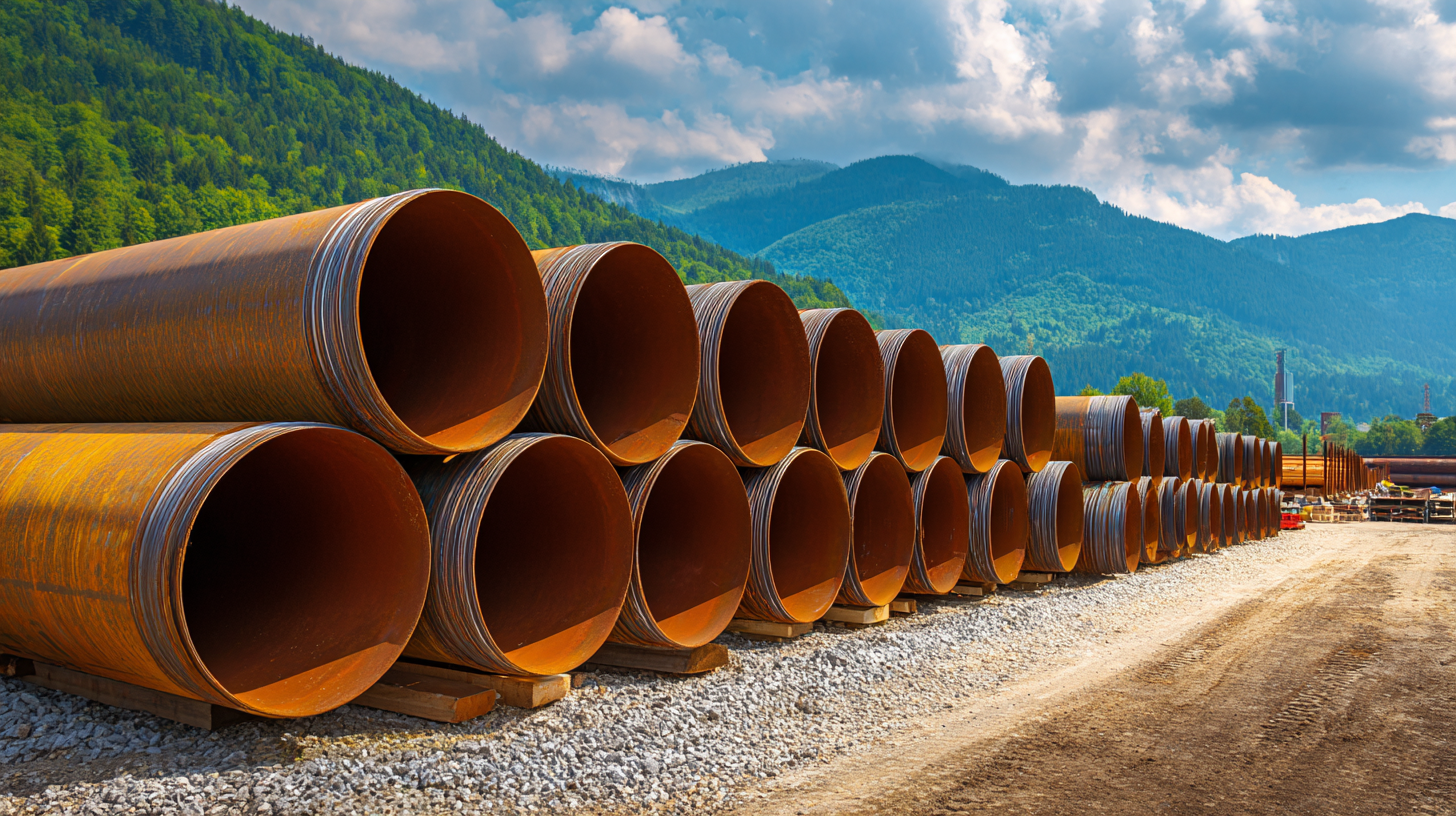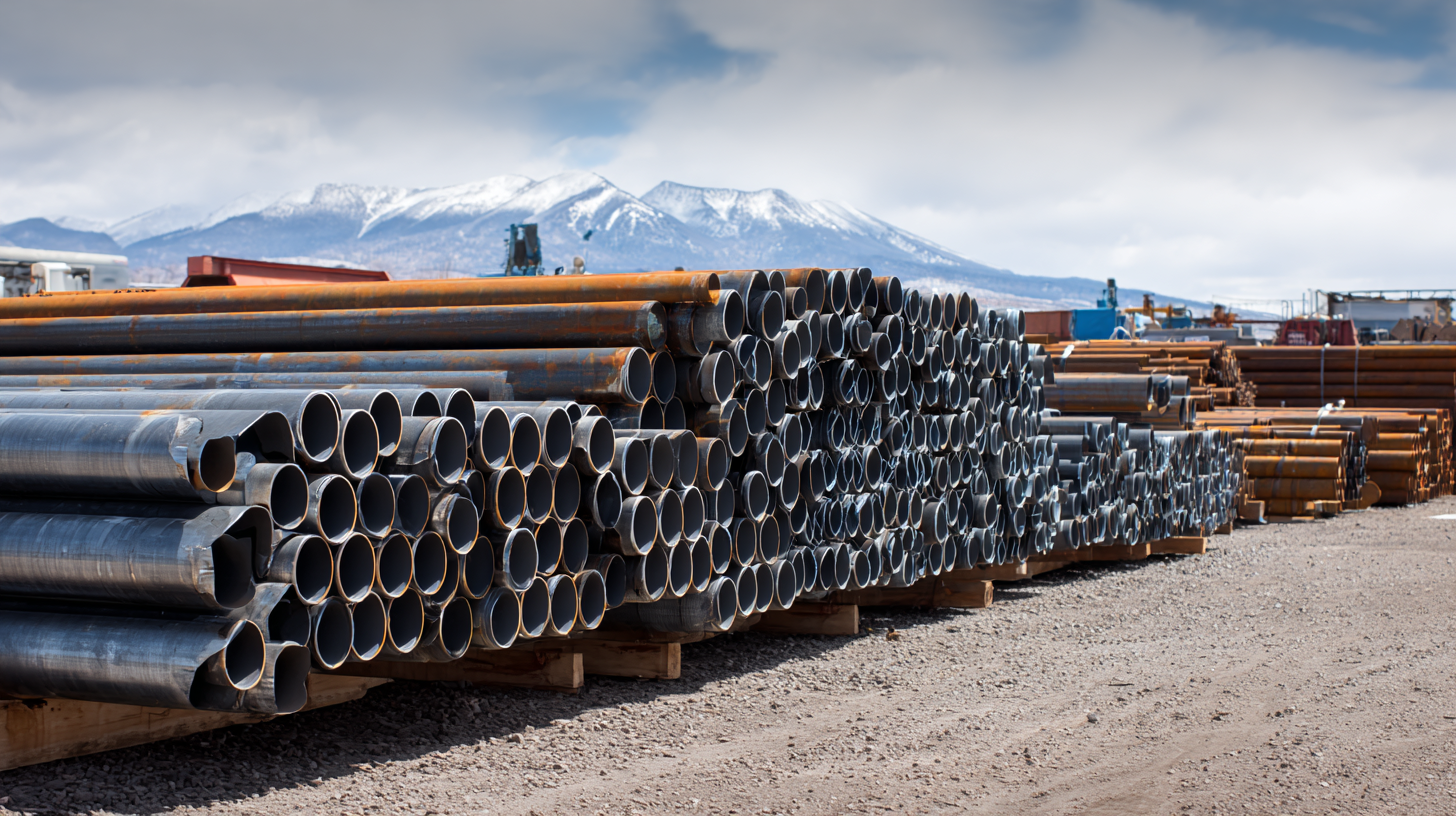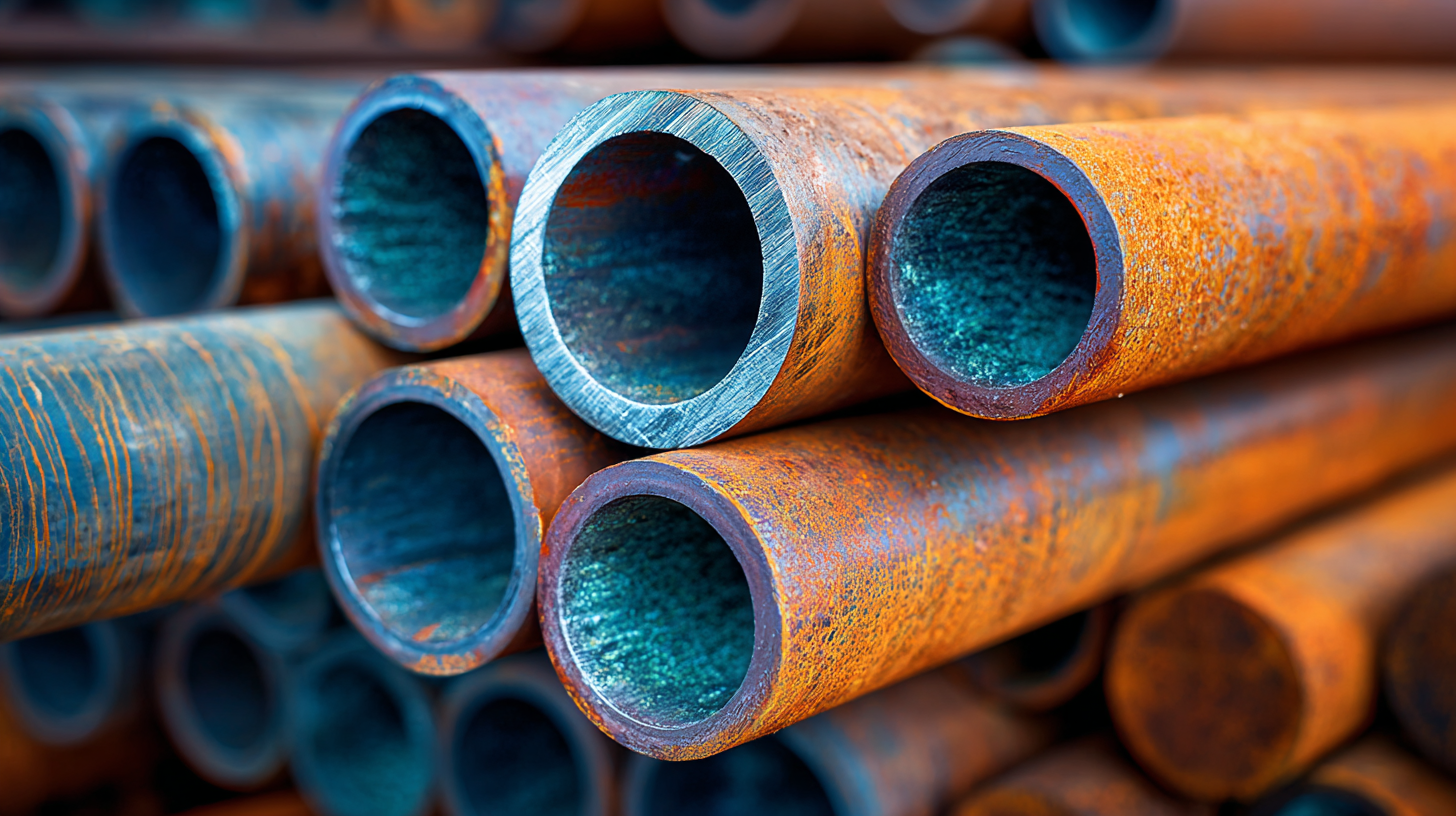In the ever-evolving construction and manufacturing industries, the demand for durable and efficient materials is paramount. Steel pipes, known for their strength and versatility, are increasingly becoming the go-to solution for a variety of applications, from infrastructure projects to oil and gas distribution. According to a report by Research and Markets, the global steel pipe market is projected to reach USD 145.89 billion by 2028, growing at a CAGR of 4.3% from 2021 to 2028. This growth underscores the importance of innovative steel pipe solutions that not only enhance performance but also contribute to sustainability efforts. Utilizing advanced steel pipe technologies can lead to significant cost savings and improved project timelines, making it essential for industry players to adopt top strategies for leveraging these innovations effectively.

Advanced steel pipe technologies play a crucial role in enhancing structural integrity across various industries. With the increasing demand for robust infrastructure, innovative solutions such as high-strength steel and corrosion-resistant coatings have emerged. According to a report by ResearchAndMarkets, the global steel pipe market is projected to reach $118 billion by 2026, fueled by the need for sustainable construction materials that comply with stringent safety regulations. These advanced materials not only extend the lifespan of structures but also minimize maintenance costs, significantly reducing the overall project budgets.
Tips for selecting the right steel pipe technology: always consider the specific environmental conditions your project will face. Utilizing weather-resistant alloys can lead to improved performance and safety in harsh climates. Additionally, evaluating the benefits of seamless steel pipes can provide better resistance to pressures and reduce the risk of leaks which is critical in oil and gas applications.
Incorporating advanced welding techniques, such as laser welding, can further enhance the reliability of steel pipe installations. Recent studies indicate that these methods increase the strength of joints by up to 30%, ensuring that structures can withstand greater stresses and loads. By staying updated with these innovative technologies, engineers can achieve not only superior strength and durability but also compliance with evolving industrial standards.
The use of high-strength steel pipes in industrial applications offers several key advantages that enhance performance, efficiency, and longevity. According to a report by Research and Markets, the global steel pipes market is projected to grow at a CAGR of 4.2% from 2021 to 2026. This growth is driven by the increasing demand for durable and robust materials, particularly in the oil and gas sector, which values high-strength steel pipes for their remarkable resistance to wear, pressure, and corrosion.

Moreover, high-strength steel pipes are designed to reduce weight while maintaining structural integrity, enabling easier handling and installation. The World Steel Association highlights that utilizing lighter materials can lead to significant cost savings in transportation and installation. Additionally, these pipes exhibit superior fatigue resistance, allowing them to withstand the demanding conditions often faced in industrial settings. By opting for innovative steel pipe solutions, industries can not only enhance operational efficiency but also ensure compliance with stringent safety regulations, ultimately leading to increased profitability and sustainability.
Innovative steel pipe solutions are revolutionizing the industry by significantly reducing maintenance costs and downtime. In traditional systems, the need for frequent repairs and inspections often leads to disruptions in operations, ultimately affecting productivity and profitability. However, with the introduction of advanced materials and technologies, companies can now rely on robust steel pipe systems that offer enhanced durability and lower maintenance requirements. These innovations not only extend the lifespan of the pipes but also minimize the frequency of replacements, providing substantial long-term savings.
Utilizing innovative steel pipe solutions enables organizations to streamline their maintenance processes. By leveraging smart technologies such as predictive analytics and automated inspections, companies can identify potential issues before they escalate, ensuring timely interventions. This proactive approach reduces the likelihood of unexpected failures, allowing businesses to maintain consistent operations. In a world where efficiency is paramount, the integration of these advanced steel pipe solutions ensures that companies can focus on their core activities while enjoying the benefits of reduced operational interruptions and enhanced reliability.
| Innovation Type | Maintenance Cost Reduction (%) | Downtime Reduction (Hours) | Corrosion Resistance (Years) | Energy Efficiency Improvement (%) |
|---|---|---|---|---|
| Coated Steel Pipes | 30% | 5 | 20 | 15% |
| Flexible Steel Pipes | 25% | 4 | 15 | 10% |
| High-Strength Steel Pipes | 40% | 3 | 25 | 20% |
| Composite Steel Pipes | 35% | 2 | 30 | 18% |
The modern steel pipe manufacturing industry is increasingly leaning towards sustainability and eco-friendly practices, responding to the urgent need for a green transition in manufacturing. As traditional steel production is one of the largest contributors to carbon emissions, innovative steel pipe solutions are now designed to minimize environmental impact. Techniques like hydrogen-based steel production within this sector promise substantial reductions in carbon footprints, offering a cleaner alternative to conventional methods. By embracing these technologies, companies are actively participating in the global commitment to lower greenhouse gas emissions and reduce their reliance on fossil fuels.
Moreover, the focus on sustainable practices extends beyond production. Utilizing innovative steel pipes made from recycled materials supports the circular economy and leverages local resources, fostering community resilience. This shift not only benefits the environment but also strengthens local industries by promoting Australian-made products. As construction projects increasingly adopt eco-friendly materials, the integration of modern, innovative steel pipe solutions plays a pivotal role in creating sustainable infrastructure that benefits both the economy and the ecosystem. Emphasizing sustainability within steel manufacturing leads to a more responsible approach in addressing the environmental challenges facing our world today.

Innovative steel pipe solutions are transforming the construction and manufacturing industries by significantly enhancing project efficiency. According to a report from the American Institute of Steel Construction, projects utilizing steel pipes designed with advanced engineering techniques have seen a productivity increase of up to 30%. This improvement is largely attributed to the reduced installation times and lower maintenance costs associated with modern steel pipe technologies.
Moreover, a study conducted by the Steel Pipe Institute reveals that energy efficiency in projects utilizing these innovative solutions can improve by 15-20%. This is particularly evident in large-scale infrastructures where the durability and strength of the pipes reduce the frequency of replacements. By adopting innovative designs, companies are not only streamlining their operations but also achieving greater sustainability, as higher efficiency translates to lower resource consumption and waste generation over the lifecycle of the project. The data clearly demonstrates that innovative steel pipe solutions are not just a trend but a strategic move toward optimizing performance and reducing costs in engineering projects.



